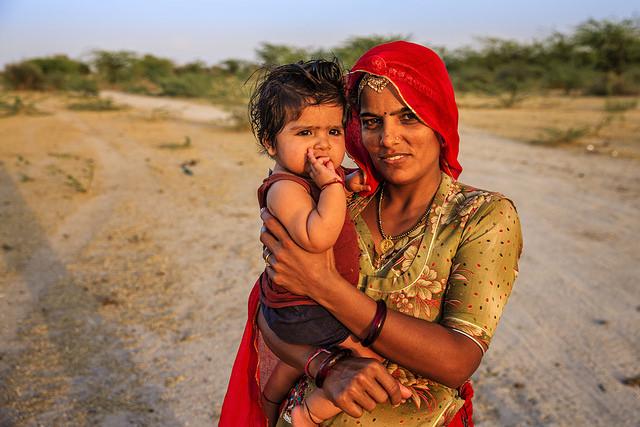
In June, the Government of India earmarked $409,470 to expand its “Ensuring Spacing at Birth” scheme across all 34 districts in Maharashtra. Advocates initially sought to extend the effort into one district, but incited a larger advocacy movement for state-wide expansion. Consequently, the scheme allocation for Maharashtra state is a sevenfold increase (646%) from the previous year’s budget of $54,899. The funds will support birth spacing uptake and encourage broader contraceptive method mix within Maharashtra.
Since 2012, the Ensuring Spacing at Birth (ESB) initiative has aimed to improve family planning communication and address benefits, myths, and misconceptions about spacing contraceptive methods (condoms, pills, IUDs, and injectables) among couples.[1] Frontline community health workers known as accredited social health activists (ASHAs) identify eligible couples across 18 focus states in India, informing them early on about the health and economic benefits of planning for their first child after two years of marriage and delaying the second child for at least three years[2]. ASHAs are paid 500 rupees ($7.44) for each activity.
Maharashtra state government first introduced ESB in nine high-priority districts in 2015[3], where 37.5% of the women aged 20-24 reported having two or more births.[4] In March 2017, Advance Family Planning local partner Jhpiego India ascertained that Pune district was not included in the initial ESB implementation list. More than 5% of women in Pune have an unmet need for birth spacing; although relatively low, it is higher than the state average of 4.3%[5].
Supported by Jhpiego India, the local advocacy district working group members approached officials in Maharashtra State Family Welfare Bureau to advocate for Pune to be included as part of the ESB initiative and budget, citing achievements[6] from the high-priority districts. The State Family Welfare Bureau officials responded positively—furthermore, the advocacy meeting triggered an internal discussion about the scheme. In January 2018, the Bureau approached the State ASHA Coordinator about expanding the ESB initiative, sparking more advocacy meetings between district working group members and government officials.
In a surprising turn of events, in March 2018, the Bureau and the State ASHA Coordinator agreed to expand the ESB scheme to all 34 districts in Maharashtra, covering 55,000 eligible couples. A budget of 27.5 million Indian rupees ($409,470) was proposed for the National Health Mission’s 2018-2019 Program Implementation Plan[7] at the state level. Approved in June 2018, the budget also includes payment for each ASHA serving eligible couples.
The policymakers’ actions show their intent to fulfil Maharashtra’s Family Planning 2020 commitment to provide family planning services to 2.95 million additional women and sustain coverage for the 12.6 million women currently using contraceptives.[8]
Next, Jhpiego India and district working groups intend to support the introduction of ESB in Advance Family Planning geographies.
1 National Rural Health Mission. Accessed August 10, 2018. http://nhm.gov.in/nrhm-components/rmnch-a/family-planning/schemes,-guidelines-important-government-orders.html
2 Eight Empowered Action Group states (Bihar, Chhattisgarh, Jharkhand, Madhya Pradesh, Orissa, Rajasthan, Uttar Pradesh, Uttarakhand) and eight North eastern states (Arunachal Pradesh, Assam, Manipur, Meghalaya, Mizoram, Nagaland, Sikkim, Tripura) and states of Gujarat and Haryana through Union government directive dated 31st May 2012.
3 Aurangabad, Beed, Dhule, Gadchiroli, Hingoli, Jalgaon, Jalna, Nanded and Nandurbar
4 "District Level Household & Facility Survey ...." National Family Health Survey. Accessed August 10, 2018. http://rchiips.org/DLHS-4.html
5 National Family Health Survey 4
6 Out of 136,050 ANC registered in 2016-17 in Aurangabad and Hingoli district, 21,410 women space their child by more than 2 years for which 897 ASHAs received incentives of 10.56 lakh INR.
7 National Rural Health Mission (NRHM) PIPs & ROPs." National Rural Health Mission. Accessed August 10, 2018. http://nhm.gov.in/nrhm-in-state/state-program-implementation-plans-pips/maharashtra.html
8 Maharashtra FP2020 commitment: National Rural Health Mission. Accessed August 10, 2018. http://nhm.gov.in/nrhm-components/rmnch-a/family-planning/schemes,-guidelines-important-government-orders.html.

